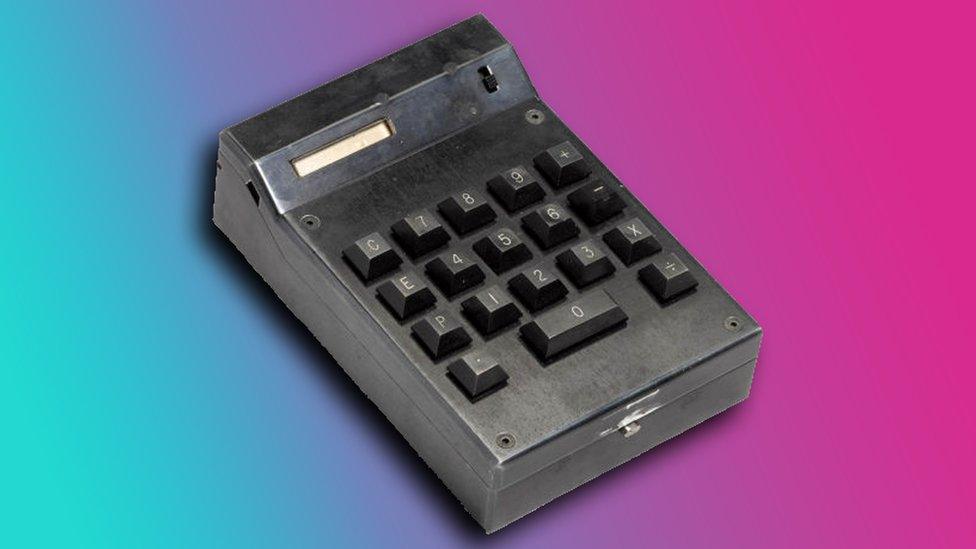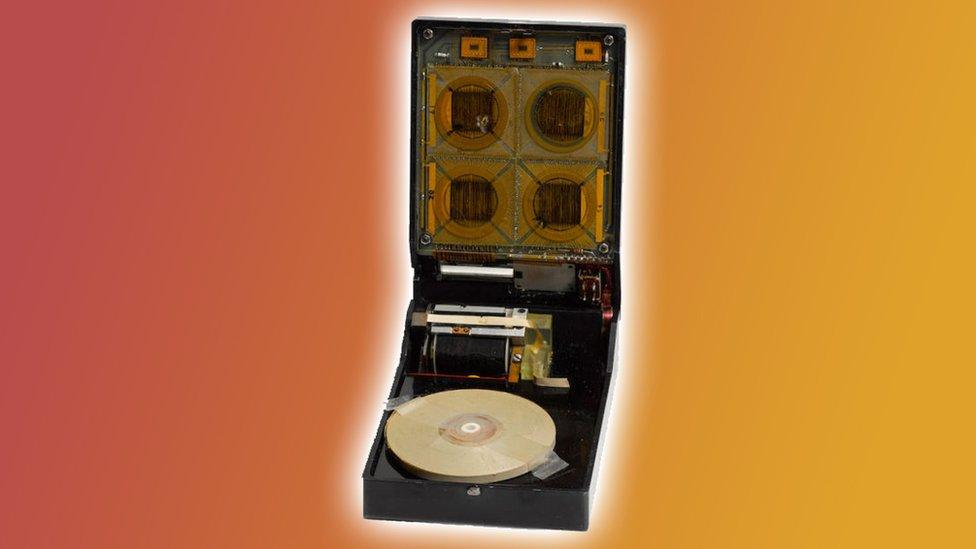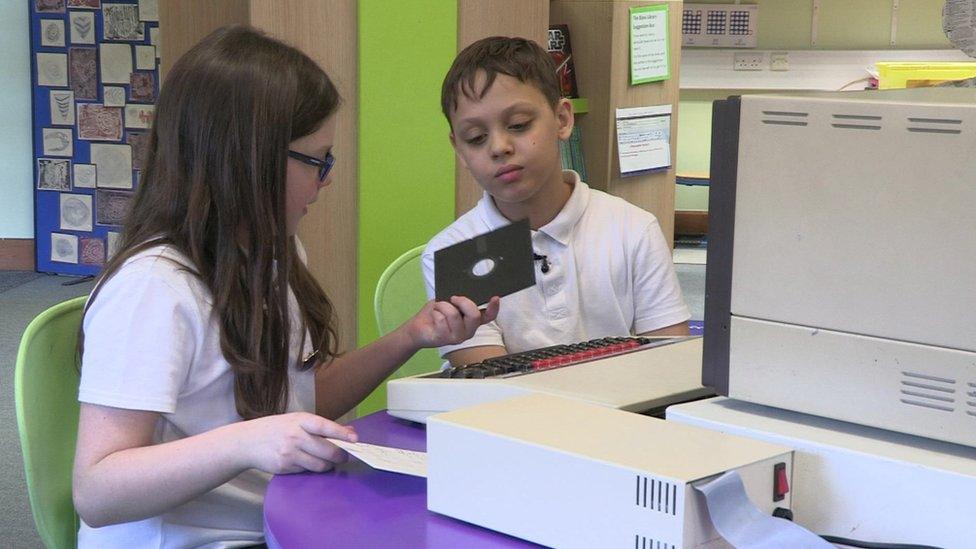World's first handheld calculator up for grabs
- Published
- comments

The world first prototype handheld calculator, named the Cal-Tech and made in the 1960s, is being sold at auction. Only two of the original prototypes are known to still exist!
Ever seen a device like this before? It's pretty old and was once used to work out sums... that's right you guessed it! Meet Cal-Tech, the world's very first prototype of the handheld calculator!
While you might be used to having a calculator at the touch of a smartphone button, this clever bit of technology was first developed in the 1960s and looked VERY different to what you know now.
First off - it wasn't hidden in a phone as an app, but was a big device all of it's own and could only do four calculations!
The first prototype was created by a company called Texas Instruments and is expected to fetch a whopping $30,000 - $50,000 (£23,000 - £38,000) at an auction in Los Angeles on 5 November.
Facts about the world's first handheld calculator

Cal-Tech was built well before technologies like LED and LCD displays (which are used today). Instead the team used a thermal printer and scrolling tape to display numbers and values.
Calculators have evolved a lot since 1965 and are are now used for complex equations and found in countless devices - from watches to smart phones. But this prototype started out as a very simple device that could only perform four basic mathematical calculations.
It was the world's first battery-operated handheld calculator and took two years for the company's engineers to design and build.
The prototype had a unique keypad and a built-in thermal printer which served as its display. It all had to be created from scratch as no existing technologies were small enough to squeeze down to the size of the device Texas Instruments wanted. It might look like a big, clunky device now, but the idea of having a calculator that was small enough to fit in your hand was ground-breaking at the time!
It was completed in 1967 and took four years to turn the prototypes into a product that could be put into mass production, because the electronics were so advanced for the time.
Canon bought the rights to produce the calculator and released the Pocketronic in 1971. The 4-function calculator cost $150, which would be nearly $900 today!
5 million pocket calculators were sold in the US in 1972 and sales continued to grow as the costs came down.
What do you think about this old-school tech? Would you take it to your maths class? Comment below!
- Published27 October 2020

- Published27 October 2020

- Published21 March 2016

